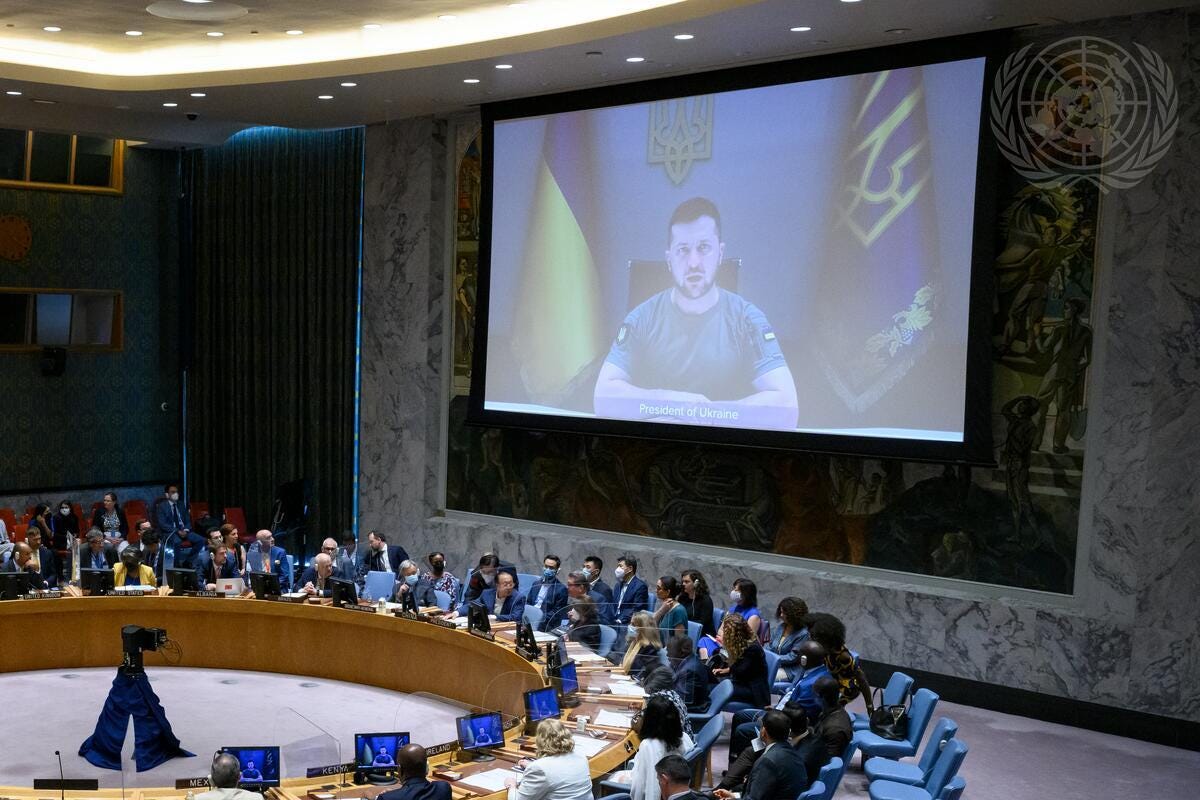Macron’s European Political Community should take action that other international bodies could but won’t
Member countries should not be timid about a broad remit for this new body
President Macron is an impressive politician. He inspired more than 40 countries with his vision of a “European Political Community” and managed to stage-manage their participation in its launch.
The embryonic EPC held its first meeting in Prague on 6th October in advance of an informal meeting of the European Council on 7th October
The invitation list to the Prague meeting included 17 non-EU-Member States. The President of the European Council and the President of the European Commission were also invited. For the list of attendees see here.
The summit provided the occasion for an important meeting between President Macron and UK Prime Minister Liz Truss, followed by a joint statement which included an agreement to resume UK-France summits and hold the next one in 2023 in France. Truss successor PM Rishi Sunak is backing the closer UK/France relations and preparations are already in hand for the 2023 summit and for cooperation in the EPC.
What should the developing EPC look like?
There seems to be a consensus that a binding treaty is to be avoided in favour of an informal framework. That makes sense. A good option would be a political agreement on the aims and structure of the organisation, covering any voting rules that might be put in place and the status of votes taken by the EPC. There would be nothing strange about a non-binding written framework. It works for the G7.
The EPC could be very loosely modelled on the United Nations. In fact, at the inaugural meeting Lithuanian President Gitanas Nausėda tweeted that the EPC could be a United Nations of Europe in the making. Its aim would be the achievement of security, stability and prosperity on the European continent. That catch-all formulation figured in the Prague documentation.
Concerns about the EPC duplicating the work of G7, UN OSCE etc are too timid
Concerns about the EPC duplicating the work of other bodies such as the G7, NATO, the Council of Europe, the Organisation for Security and Cooperation (OSCE) and the UN have been expressed by the UK Government. And maybe by Spanish Foreign Minister José Manuel Albares, who tweeted on 17th November that he would work together with his Moldovan counterpart “to activate the European Political Community and within the OSCE for peace, stability, and security in Europe.” But demarcation between the activities of the EPC and these other bodies should not be over-strict.
Actions by international bodies can and do overlap without causing problems. All the international bodies referred to above have engaged with the issue of climate change, without undermining the Paris Agreements or the annual Conferences of Parties to those Agreements. Foreign Ministers of the G7 issued declarations in May and August 2022 on, respectively, climate change and peace and security, and on preserving peace and stability across the Taiwan Strait, while the G7 Leaders’ Communiqué June 2022 vowed to “continue to impose severe and immediate economic costs on President Putin’s regime for its unjustifiable war of aggression against Ukraine..”. No complaints yet from COP27 or the UN, it seems. Indeed, Japan, which is due to take over the Presidency of the G7 in 2023, and to take up its role as a non-permanent member of the UN Security Council, has vowed to use both roles to put pressure on Russia.
Meanwhile Russia has been blocking UN Security Council resolutions on Ukraine, and more recently blocking action in the OSCE as it derails peacekeeping missions and disrupts the organisation’s budgetary process.
Free Europe needs an organisation that Russia isn't a part of to do the job of organisations that Russia is part of, and in any event, several international bodies focusing their energies on common problems is more likely to yield practical results than fighting turf wars over who does what.
In the “United Nations” model of the EPC, the basic working unit would be its Plenary Assembly, made up of all the Member States of the EPC.
There could also be a role for a European Security Committee or Security Council. This is something France and Germany have floated in the past, as a body in which the UK would participate. In this manifestation it might comprise France, Germany, the UK, and perhaps Turkey, in recognition of its strategic importance.
An EPC Security Council of France, Germany, Turkey and the UK would give impetus to collective security thinking by the quartet as well as increasing bilateral security contacts between the quartet and others. The EPC Security Council could also provide visibility to the EPC between summits and adopt and publish positions taken by consensus of the quartet on issues falling within the general remit of the EPC, without prejudice to positions taken subsequently in summits of the EPC as a whole.
Derrick Wyatt, KC is Emeritus Professor of Law, University of Oxford, where he taught EU law, constitutional law, and public international law. He was formerly a barrister specialising in litigation before the EU Courts and is currently a Member of the International Academic Council of Fide Fundación, an independent and non-partisan Spanish think-tank.
For more details on the origins and possible future direction of the EPC see my Op-Ed EULawLive requested for their Symposium on the EPC, which appears here.




